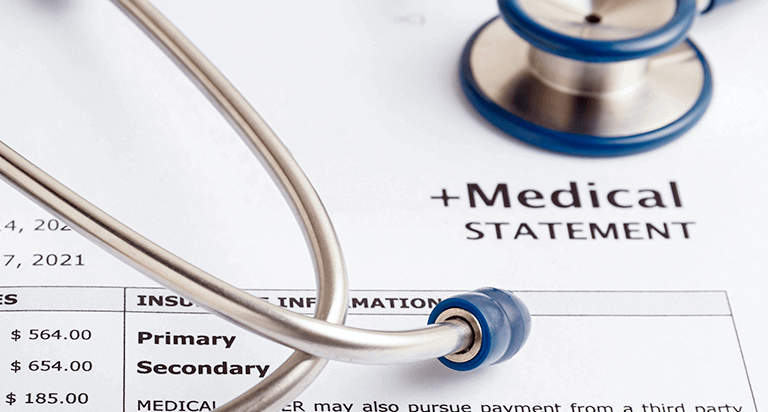Can Medical Collection Debt Impact Credit Scores?


Highlights:
- The Nationwide Credit Reporting Agencies (NCRAs) — Equifax®, Experian® and TransUnion® — removed medical collection debt with an initial reported balance of under $500 from U.S. consumer credit reports as of April 2023.
- This change in credit reporting removes nearly 70 percent of collection accounts from consumer credit files.
- There are some actions to consider that may help prevent debt from medical bills.
The Nationwide Credit Reporting Agencies (NCRAs) — Equifax®, Experian® and TransUnion® — have removed medical debt with an initial reported balance of under $500 that was sent to a collection agency from U.S. credit reports effective April 2023. This change in credit reporting removes nearly 70 percent of collection accounts from consumer credit files.
The removal of medical collection debt with an initial reported balance of under $500 from U.S. consumer credit reports is expected to have a positive impact on people’s personal and financial well-being and follows changes made by the NCRAs in 2022. Effective July 1, 2022, paid medical collection debt is no longer included on U.S. consumer credit reports. In addition, the time period before unpaid medical collection debt appears on a consumer’s report was increased from 6 months to one year, giving consumers more time to work with insurance and/or healthcare providers to address their debt before it is listed on their credit file.
Before this change in the reporting of medical collection debt, if a healthcare provider turned your overdue account over to a collection agency because you haven't paid the amount due, the collection agency might report that debt information to the NCRAs after a 180-day (six-month) period.
By removing paid medical collection debt from credit reports, this joint action from the NCRAs helps support consumers faced with unexpected medical bills. Most healthcare providers do not report to the three nationwide credit bureaus (Equifax, Experian and TransUnion), which means most medical debt billed directly by physicians, hospitals or other healthcare providers is not typically included on credit reports and does not generally factor into credit scores.
When you receive your medical bills, be sure to examine them carefully and compare them with the explanation of benefits provided by your health insurance provider. If you believe you've found an error, contact your medical provider or health insurance company. Ask for an itemized bill so you can better understand what you're being charged for.
It's always a good idea to regularly review your credit reports to make sure the information is accurate and correct. You can receive free Equifax credit reports with a myEquifax account. Free weekly credit reports from the three NCRAs are available at annualcreditreport.com through the end of 2023. If you're facing mounting medical expenses, there are some things you may want to consider to help prevent accumulating debt from medical bills.
- Contact your health insurance company. Know your coverage and follow up to make sure the company is paying costs it has agreed to cover.
- Negotiate with your health provider. If you can't afford to pay a bill, try to work with your medical provider to reduce the amount owed or set up a payment plan.
- If you believe that a debt has been listed on your credit report mistakenly, contact the medical provider or collection agency first. You can also file a dispute with the three NCRAs. At Equifax, you can file a dispute at myEquifax. Visit the dispute page to learn other ways you can file a dispute on your Equifax credit report.
- While most medical debt is generally not taken on voluntarily, if possible, prepare for medical procedures in advance by finding out what your insurance will cover and what costs are your responsibility.

Sign up for a credit monitoring & ID theft protection product today!
For $19.95 per month, you can know where you stand with access to your 3-bureau credit report. Sign up for Equifax CompleteTM Premier today!



